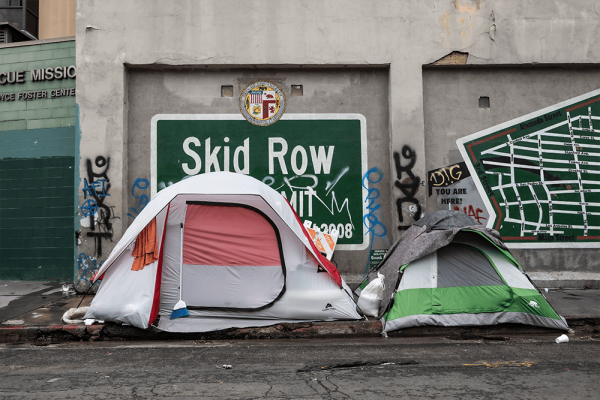Jul 24, 2024
It’s an overcast Saturday morning on Gladys Avenue in Skid Row — a 54-block area in downtown Los Angeles, home to one of the country’s most stable populations of people experiencing homelessness or housing insecurity. Andrew Jiang of Alhambra, a city in western Los Angeles County, is there with a group of around 15 other volunteers with the Friars and Sisters Poor of Jesus Christ to serve chicken, rice, and vegetables to some 150 people living on Skid Row. On other days, a team of friars, nuns, and volunteers will walk block to block, distributing up to 400 sandwiches to more than 200 people.
Read the Full Article

Already a subscriber? Login
